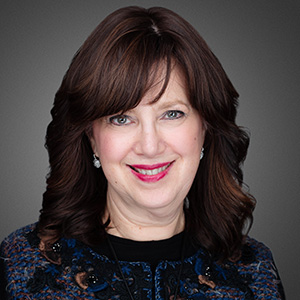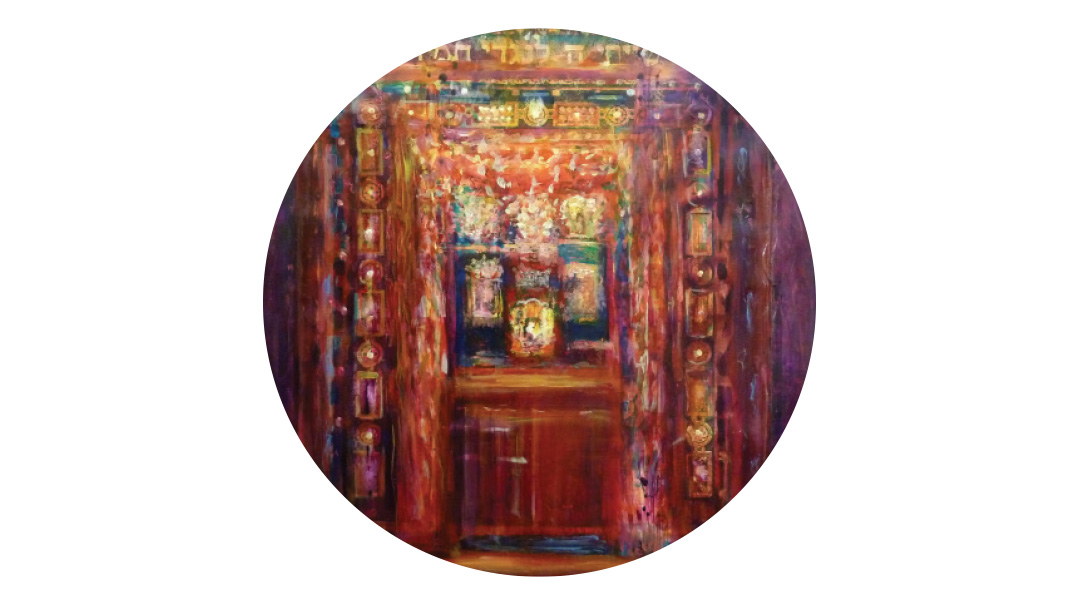Compared to What?

Escape the marriage comparison trap

S
hulamis is surprised that marriage is such an adjustment. Yussie is so mild-mannered and refined. It’s just that he just looks at life very differently from the way she does and doesn’t accept certain truths she holds to be self-evident (like the need for household help once a week). Marriage feels heavy to her.
Chana got married about the same time as Shulamis, and is often spotted on the “Avenue” with her husband Rafi, the two of them sipping coffees and giggling together. Shulamis wonders if Chana and Rafi are a better fit than she and Yussie are. She sighs wistfully as she goes home to make the meat and potatoes dinner she doesn’t particularly like, but which Yussie requested. She wonders what Chana and Rafi are having for supper (sushi, she speculates).
Comparison as a Tool
Comparing ourselves to others is a universal activity. When we’re young, we compare our grades to our classmates’; we compare the gift we received from Zeidy and Bubby to the gifts our siblings got. We use comparison as a tool to assess our own achievements and how we’re viewed by others. As we mature, we learn to compare ourselves to others as a way of monitoring that we’re socially appropriate. There’s even a theory in psychology, developed in the 1950s, called Social Comparison Theory, which is the idea that individuals determine their own social and personal worth based on how they stack up against others. I walk into shul, or the school dinner, or a simchah and look at what other women are wearing, checking that I didn’t overdress or underdress. I make a few calls to other mothers in my son’s class before Chanukah, comparing the gift I had in mind to buy for the rebbi with what others are giving, so I know it’s within the acceptable range.
Comparison is a function of judgment. The mitzvah of “b’tzedek tishpat amisecha,” to judge others favorably, presumes that we are judging, and tells us it’s incumbent on us to filter those judgments through a positive lens, finding reasons people are innocent and good, rather than guilty and bad.
When we compare our marriage to anyone else’s, or our home and what goes on in it to anyone else’s, we’re treading on fraught territory. And in the end, doing so is just plain old unhelpful. One reason that kind of comparison hurts us is that we don’t really know someone else’s story, no matter how much we think we do.
It’s a Trap
Every person, like every couple, has an inside persona and an outside façade. I’m not implying that everyone is putting on a show, but rather that what is personal and deeply private about you personally, as well as about your relationship with your spouse, isn’t meant to be displayed in public. In this arena, privacy is protection. As a result, on the outside, for public view, we’re all staged to a certain extent.
Societal norms strongly dictate the range of behaviors that indicate “getting along,” “looking good,” even “looking frum” in our particular slice of society. When I look wistfully at another couple, I’m comparing my inside life to their outside persona. I’m comparing myself to an illusion, not to a reality; I’m allowing myself to get worked up about an image. What can ensue is a lot of pain over my own situation, which can lead to jealousy, and at that point, it becomes difficult to recognize and enjoy what I do have. We’ve caused ourselves a lot of angst based on something that isn’t real.
Social media contributes to our angst as we scroll through the endless pictures of “beautiful people” and “cooperative families” who appear on our feed. Social media is first and foremost a business, and idealized versions of life sell. I had a good chuckle when I saw a woman sporting a T-shirt that said, in large letters, “No One Cares About Your Fake Instagram Life.”
A certain vigilance is necessary not to fall into the comparison trap. Even an innocent comment your husband makes to you about the million-dollar vacation home his chavrusa just bought, can trigger a line of comparison thinking. That guy stuck with his business over the years until he made something out of it; my husband kept trying new things, why couldn’t he be like Donny….
How do we get out of that mode of thinking?
The last of the Aseres Hadibros is the mitzvah not to covet what someone else has. The pasuk says, “Lo sachmod beis rei’echa… v’chol asher l’rei’echa — you shouldn’t covet your friend’s house… and all that belongs to your friend” (Shemos 20:14). The word chol, all, seems extraneous.
It teaches us that when we look at someone else, we need to look at the whole picture and realize that all that we would want comes with things we wouldn’t want. Understand that a prettier picture doesn’t always translate into a happier picture. The most deeply satisfying marriage might be in the home of a couple you’d never think to compare yourself to.
Learn to see your home as your world, the one Hashem designed for you. You may inhabit the same solar system as others, but you live on your own planet. Why is what is happening on Mars relevant to what happens on Jupiter?
It’s All Relative
In the sefer Ohel Rochel, Rav Menachem Schlanger says that a home must have a value system of its own that is distinct from the values of the world outside. Therefore, the way we evaluate ourselves and our family members should differ from the way the rest of the world does. When your child comes home from school, sad that he wasn’t chosen for the team, the value you assign to your child has nothing to do with how his peers perceive his baseball abilities. So, too, your spouse has to be evaluated within your home by a set of values separate from how the rest of the world perceives him, a separate system created by you as a couple based on what’s important to you.
In Megillas Esther, Achashveirosh sends out an edict saying that all the wives in his kingdom have to give “honor to their husbands, from the smallest to the greatest.” Our commentators note that people laughed when they read this edict, as this was so patently obvious to them. Rav Schlanger comments that in essence Achashveirosh was saying that the lowest person on the social strata was deserving of kavod from his wife no differently than Achashveirosh himself would warrant from his wife.
We evaluate people in our lives according to two ladders of value. The first is based on the person’s objective attributes: Which abilities was she given and what has she achieved with them? How much Torah has he learned and how is that reflected in his life? Can we see her good middos from her interactions with others?
The second ladder is one of relative value. What does that person mean to me? What would my life look like if this person wasn’t in it? On this ladder, value is based on our relationship with the person being evaluated.
These two ladders of value exist in marriage. The value we ascribe to our spouses is based on what their essence is, and no one knows that better than a spouse. What are the soul characteristics inherent in the person I’m married to? And secondly, what would my life look like without my spouse in my life? The answers to these two questions create the unique picture of the person we’re married to and the home we want to build together, and it’s irrelevant if these characteristics are known or valued outside our home.
The flight of fancy about what my life could’ve been like that results from comparison is easier to engage in than doing the hard work required to get to a better place in our own life and in our marriage. Know that fantasy is the enemy of truth.
Constructive Comparisons
There is, however, one important comparison that can be made: How does what is going on in my marriage or my home compare to what I perceive as normal and healthy? If you find yourself asking that question, reach out to a rav, rebbetzin, or mentor.
Comparisons aren’t all negative. It’s good to compare who I am now with who I want to become, or where my marriage is and where I want it to be. When we focus on that goal, we can make a plan and implement it.
Another significant comparison to make is to ask yourself: How does where I am now compare to where I started? As we climb the mountain of personal development, it’s important to stop along the way and note how far we’ve come, as the satisfaction from the strides we’ve made fuels further progress.
Perhaps the best use of comparisons is to compare who I am right now with my understanding of who Hashem wants me to become. Using our energy to look inward instead of outward will help us turn away from the constant comparison to others, and free us up to be able to actually become those people.
Debbie Greenblatt is a senior lecturer for the Gateways organization and has been a teacher of both observant and not-yet-observant Jewish women for over 30 years. Debbie’s lecture topics include Jewish texts, Jewish thought, and relationships.
(Originally featured in Family First, Issue 826)
Oops! We could not locate your form.







